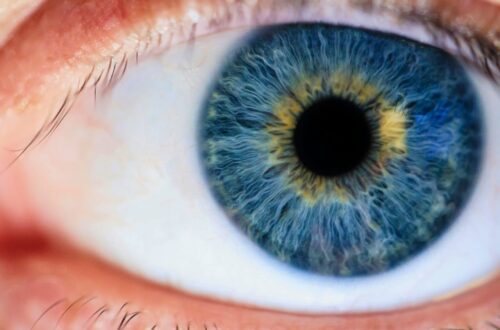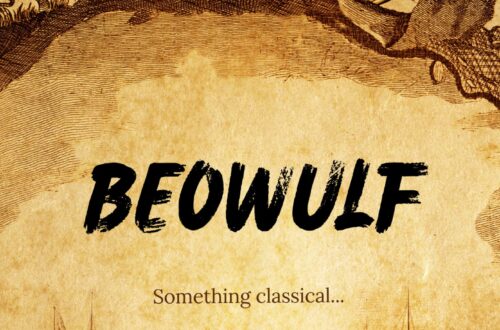Beowulf is an ancient Anglo-Saxon epic. Here are the discussion on the character analysis of Beowulf.
Beowulf
Beowulf, the naming hero and protagonist of old English epic poem Beowulf, is a Geatish hero. Beowulf is the son of Ecgtheow but he is raised up by Hygelac who is brother-in-law of Ecgtheow’s father as Ecgtheow dies at an early age. Beowulf is famous for his valor, courage, bravery, boldness, fearlessness, loyalty and generosity. Instead of his immense popularity, he remains loyal to his ring giver Hygelac. He even refuses Hygd’s offer of ruling the Geatland after Hygelac has been killed by his enemies. Anglo-Saxon values are portrayed in his character very vividly. At his early age, Beowulf was not regarded as a hero and this situation is similar to the situation of Shield Sheafson, the founder of the Danish kingdom. Both of them were not known to the people at their early age but later they were highly celebrated for their own capability and strength. He comes to the Danish kingdom to help Hrothgar, the king of Spear Danes. Hrothgar once helped Beowulf’s father to save his life. In order to show gratitude and loyalty and also to gain glory for himself, Beowulf comes to the Spear-Danes and fights with the grim-demon Grendel without any weapon. His second fight with Grendel’s mother is more venturesome and uncanny but he becomes successful to kill the hell-brute demon or Grendel’s mother. His name and fame spreads everywhere and he was regarded as a community hero then. From the digression of Breca, we can know that Beowulf kills nine sea monsters and his boasts are always wrapped in truth. Beowulf is compared to Sigemund, the dragon slayer , which foreshadows Beowulf’s final fight will be held with a dragon, “the guardian of the hoard”. After ruling Geatland for fifty years a fire breathing dragon attacks Beowulf’s kingdom. It is the same situation as it was with Hrothgar the Danish king. Unlike Hrothgar, Beowulf chooses to play his role as a warrior again by fighting with the dragon instead of saving his people by playing the role of a king or their guardian. At his youth, he used to fight for personal glory and at his old age, he does the same thing which seems like an apparently wrong decision. Though Beowulf was able to kill the dragon with Wiglaf’s help, he had to pay an immense price for this decision. He dies as the dragon makes him wounded. Following his last wish, Beowulf is buried in a barrow. After his pyre has become cool, his ashes are put in the barrow with extensive treasure which he has won by killing the dragon. This shows the absolute futility and uselessness of treasure. But Beowulf’s barrow is built on a cliff high above the sea and it becomes a landmark for people. The barrow is built near the sea so that sailors can see it and call it “Beowulf’s barrow” that will make his glory intact even after his death. Thus he dedicated his life for name and fame and he was a worthy hero of his time. (The character analysis of Beowulf is most viewed).
Hrothgar
Hrothgar is the king of the Danish people who is very humble and generous. He is the son of Halfdane and father of Hrothmund, Hrethric and Freawaru. “The gray haired prince” is also brother of Heorogar and Halga and brother-in-law of Onela the Swede. His wife’s name is Weahltheow. Hrothgar is a worthy and successful king who has built his kingdom based on his excellence, generosity and wisdom. At his early age, he was a great warrior, but at present old age has taken away his boldness as a warrior. Now he can no longer save his people from Grendel as his sons are too young to take the throne. This situation represents a potential threat of the lack of a king which was considered very hazardous for any Scandinavian tribe. Hrothgar and the Danish people’s situation foreshadows the actual threat of the lack of a king in Geatland after Beowulf’s death.
As a protector and nurturer, a king must think about the welfare of his people before his desire of personal glory. Hrothgar also does the same thing. For his personal glory, he does not take the risk of fighting with Grendel. He does not want to get involved in an unnecessary fight that may lead to his death. Rather being a leader, he thinks of his people’s welfare. Hrothgar has built a vast mead hall named Heorot. It is the ‘wonder of the world’ which represents Hrothgar’s might and power and also demonstrates Danish prosperity under his reign. Though he is unable to save his subjects, yet his people love him. They never blame “on their lord the noble Hrothgar.” This shows how successful and honorable king he was.
In Anglo-Saxon culture a good king must become a ring giver. Ring giver is an extended metaphor which indicates a person who bestows rings among the soldiers or subjects. Soldiers fighting bravely accept valuable gifts from the king. Gold or gifts actually work as a symbol of political or diplomatic power or even it can solve a feud. However, Hrothgar is mentioned as “Gray-haired treasure giver” After the completion of Heorot, he gave out rings among his subjects. He even encourages small achievements, so Beowulf is surely the biggest achiever as he has killed the captain of the evil Grendel. Hrothgar gives him golds, eight horses with gold bridles, a banner, an armor and the same saddle that Hrothgar used to ride on while going to battles. This means passing of his legacy to Beowulf. He also gives numerous treasures to the twelve companions who come with Beowulf from Geatland to Denmark.
Wealhtheow
Wealhtheow is the wife of king Hrothgar and mother of Freawaru . She is intelligent, beautiful, diplomatic and wise. She always comes with good advice to the mead hall when any problem appears. Her role as a cup bearer and peace keeper is very important. Read more..
Wiglaf
Wiglaf is the son of Weohstan and the most loyal warrior among the Geatish who helps Beowulf to fight against the dragon in his final battle. He is a symbol of courage and loyalty in the face of unflinching danger. Moreover, Wiglaf is a relative of Beowulf. When all other soldiers leave Beowulf, Wiglaf is the only one who stands beside him. He keeps his promise to stand by Beowulf in every situation. He can be detected as a reverse Judas figure. Among the twelve apostles, Judas is the only one who betrays Jesus whereas Wiglaf is the only one among the eleven warriors who remains loyal to Beowulf. When Beowulf is wounded, Wiglaf inspires him, gives him courage to fight against the fire-breathing dragon again. Wiglaf’s timely sword storke provides Beowulf the opportunity to stab it in the side and to kill it then. Though Wiglaf was “First time to be tested as a fighter”, he proved himself worthy and moderately equivalent to Beowulf as a fighter. Wiglaf would rather burn his own body rather than Beowulf’s body. After Beowulf is wounded, he washes Beowulf’s excoriation and pours water from the cup of his helmet. It shows Wiglaf as a cupbearer in the absence of a queen. In addition, according to Beowulf’s order he brings the treasure near him and grief- stricken Wiglaf tries in vain to revive Beowulf. The wounded hero gives him his necklace or his ‘torque’ which was given by Wealhthoew. It means that Beowulf is passing his legacy or responsibility to Wiglaf. He also gives Wiglaf his chain mail, helmet and golden ring. Confirming to Beowulf’s last wish, Wiglaf becomes the king of Geatland after Beowulf dies. At first he rebukes and punishes the ‘disloyal oath breakers’ who had left them in danger. He regrets a lot for Beowulf’s departure and realizes that their old enemies like the Frisians, the Franks, the Swedes will revive the animosity again. They will attack the Geatland in absence of Beowulf. As Wiglaf is not as strong as Beowulf was, he doubts that their country may face hard days soon.
Hygelac
Hygelac is the son of Hrethel and king of Geatland. He is the husband of Hygd and father of Heardred. He is an important character because of his familial and social relationship with the hero in the text. Hygelac is Beowulf’s uncle and his ring giver and. He is a humble and generous king whose humbleness and generosity motivates Beowulf. Even after becoming a hero, Beowulf does not behave egotistically with Hygelac. Their relationship is never bothered by materialistic purposes, rather it is shaped by love, respect and loyalty. All the treasure won by Beowulf are always hoarded in Hygelac’s store. In accordance with Anglo-saxon culture he is both a good king and a great ring giver. He gives Beowulf extremely valuable gifts, for instance the gold sword of Hrethel and he makes Beowulf a lord by giving him 7000 hides, lands and a hall.
Ecgtheow – Ecgtheow is the father of Beowulf and brother-in-law of Hygelac. Ecgtheow once killed a man from Wulfings tribe named Hetholaf. Involving in a blood feud,he was in trouble. At that time king Hrothgar provided him shelter and he “nailed the feud by paying'(490). Thus Ecgtheow and Beowulf were gratified with Hrothgar. That is why Beowulf came forward to help Hrothgar when he was in trouble.
Hygd
Hygd is the queen of Geatland and wife of king Hygelac. She is the mother of Heardred. She carries out the same duty like Wealtheow does to Hrothgar as a peace-bearer or a cup-bearer. She believes Beowulf and after Hygelac’s death, she herself offers Beowulf the throne of Geatland instead of his son. Beowulf gives her the beautiful ‘Torque’ or necklace which is given to him by Wealhtheow.
Grendel’s Mother
Grendel’s mother is one of the three antagonists who fight against Beowulf, the Anglo-Saxon hero. She represents the darkness and it is Beowulf’s second fight in the text which is more difficult than the first one. After Grendel’s death, the hell-brute comes to avenge the death of her son. Beowulf understands that it is always “better to avenge than mourning.” The idea of peace-weavering does not match with her. Though she has a female body, her masculine aggression contrasts with the female passivity of other female characters who work as peace-weavers like Hildeburh or Wealtheow. The role of masculine avenger is strengthened throughout the text to narrate her personality. She does not depend on anyone to help her. Rather she does the work herself and becomes aggressive and fights against Beowulf. This fight is more difficult.
Fighting with Grendel’s mother
Beowulf goes underwater relying on his fate to fight with Grendel’s mother in her cave. He wants to see whom God gives the glory. When he reaches her cave, Beowulf is attacked by the hell-brute Grendel’s mother and she drags him in her cave. Then he tries to hit her with the sword “Hrunting”, but fails to hurt her. In rage and frustration Beowulf attacks her with bare hands. He manages to knock down Grendel’s mother, however, she manages to fight back by ending up sitting on top of him. She again tries to attack Beowulf deliberately with her dagger and fortunately his armor protects him. Then the hero Beowulf finds a large sword made by giants on the cave’s wall through which kills Grendel’s mother.
According to Jane Chance–During describing the battle between Grendel’s mother and Beowulf, the poet exhibits some basic similarities between sexual intercouse which emphasizes the conversion of the feminine role of Grendel’s mother. It happened in three steps: Firstly, the emphasis upon “clutching”, “grasping” and “embracing” Beowulf while they fight. Secondly, the combat for a dominant position to astride the other. Thirdly, the use of sword, knife or fingers to penetrate in the body that always indicates implied and symbolic kinship between the Sword and the phallus.
After her death the dark cave illuminates with light that is described as, “The dark cave illuminated with light and the place brightened”–this shows Beowulf’s victory over the darkness by killing her. The blade of the sword, made by giants which has been used by Beowulf to kill her, melts itself because her blood is too poisonous and venomous. Thus Beowulf kills her and wins victory.
Grendel
Grendel is the monster who is responsible for killing many people in mead hall. Grendel is depicted as devastating and revengeful possessing immense strength. Grendel is killed by Beowulf for being a threat for the Danes. Beowulf hangs Grendel’s hand in the mead hall as a trophy of battle between Beowulf and Grendel.
Beow
Beow is the only son of the Sheild Sheafson. He becomes the second king of the Spear Danes. He was a good king who had a son named Halfdane. Though there is a similarly between the hero’s name and his name,he is different from the real hero.
Breca
Breca is Beowulf’s childhood friend and his name is mentioned by Unferth as a digression from the main text. Breca joins in a swimming competition with Beowulf in an open sea. The exact result of the competition is not mentioned clearly. But Unferth claims that Breca has won the match. But Beowulf protests against this by saying that in that time, he had to face nine sea monsters and he killed all of them.
Aeschere
Aeschere is an advisor and most trusted retainer of Hrothgar. He is also a close friend and mentor of Hrothgar. Unfortunately he is killed by Grendel’s mother. Hrothgar is very shocked at his death. His name is mentioned four times in the text.
Halfdane
Halfdane is the son of Beow and the third king of Spear-Danes. He has four children. They are
Heorogar, Hrothgar, Halga and an unnamed daughter. Halfdane’s father is a Danish and his mother is a swedish and that is why he is called “Halfdane.”
Hrothulf
Hrothulf is the nephew of Hrothgar who betrays his Danish cousin Hrethric by preventing him from ascending the throne. Wealtheow was previously worried about the matter that he might betray her sons and after their death, Hrothulf makes the suspicion come true. Hrothulf’s betrayal contrasts Beowulf’s loyalty and sincerity.
Hope you find the character analysis of Beowulf useful.





